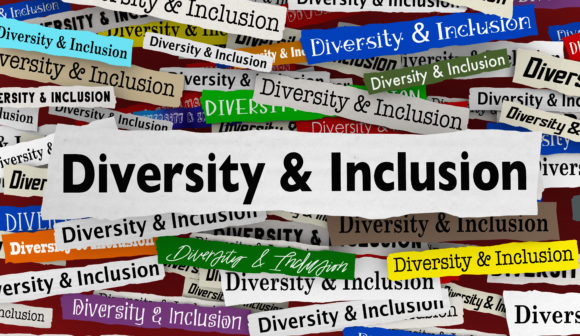Lloyd’s has made notable progress in its push to become more inclusive, according to its 2020 culture survey, but it still has plenty of room for improvement—especially when it comes to the experiences of Black and minority ethnic talent.
The annual survey, begun in 2019, is designed to track the market’s collective progress toward a more inclusive environment and identify areas that need attention.
Survey results show that progress has been made across the four priority areas Lloyd’s identified in 2019 as foundational to driving cultural change: gender balance, speaking up, well-being and leadership.
However, the survey also revealed the need to add a fifth priority area: ethnicity. Black and Minority Ethnic [BAME] respondents indicated they were less likely to raise concerns relating to discrimination, had a higher level of disagreement about whether their colleagues act in an honest and ethical way, and a higher level of distrust in senior leaders.
As a result of negative press reports in 2019 that described widespread sexual harassment in the market, Lloyd’s began a program to drive cultural change, which included conducting surveys to benchmark progress made.
Survey highlights:
- Gender Balance. Women’s perceptions have improved by 7 points on average across all characteristics, with men’s scores up 3 points—and the gap between the two has closed substantially in nearly all of the criteria measured. There also was a 5-point improvement in the number of respondents believing that people do not have equal opportunities (14% in 2020 vs. 19% in 2019).
- Speaking up. There was a 5-point improvement in the percentage of respondents who would feel comfortable raising concerns about behavior in the Lloyd’s market (50% in 2020 vs. 45% in 2019), as well as a 16-point improvement in those who raised a concern feeling they were listened to and taken seriously (57% in 2020 vs. 41% in 2019).
- Wellbeing. Fewer respondents said that working in their organization had a negative impact on their health and well-being (15% in 2020, down from 23% in 2019); however, there was no improvement in survey respondents feeling under excessive pressure to perform at work (coming in at 40% for both years).
- Leadership. There was a notable decrease in the number of respondents who do not believe senior leaders in their organization take responsibility, especially when things go wrong (8% in 2020, down from 16% in 2019). Respondents were also less likely to believe that people in their organization turned a blind eye to inappropriate behavior (15% in 2020 vs. 22% in 2019).
Covering the period from Sept. 29 to Nov. 1, 2020, Lloyd’s acknowledged that it will be difficult to ascertain the effect of the new virtual working environment driven by COVID-19 restrictions. However, this does not change the importance attributed to the findings and Lloyd’s continued commitment to building a high-performing, inclusive culture, said Lloyd’s in a statement.
Source: Lloyd’s
A version of this article first was published in Insurance Journal’s sister publication, Carrier Management.
Topics Trends Excess Surplus Leadership Lloyd's
Was this article valuable?
Here are more articles you may enjoy.



 Q4 Global Commercial Insurance Rates Drop 4%, in 6th Quarterly Decline: Marsh
Q4 Global Commercial Insurance Rates Drop 4%, in 6th Quarterly Decline: Marsh  Trump Demands $1 Billion From Harvard as Prolonged Standoff Appears to Deepen
Trump Demands $1 Billion From Harvard as Prolonged Standoff Appears to Deepen  Portugal Deadly Floods Force Evacuations, Collapse Main Highway
Portugal Deadly Floods Force Evacuations, Collapse Main Highway  What Analysts Are Saying About the 2026 P/C Insurance Market
What Analysts Are Saying About the 2026 P/C Insurance Market 

